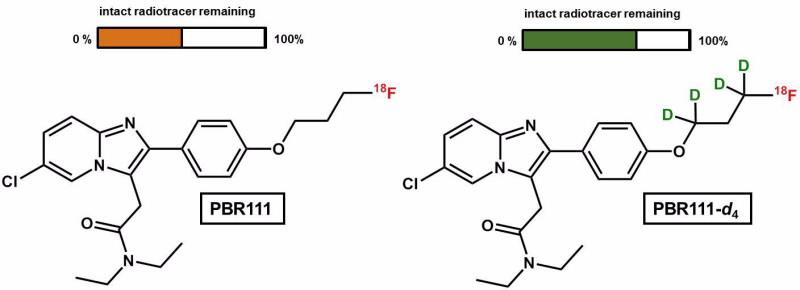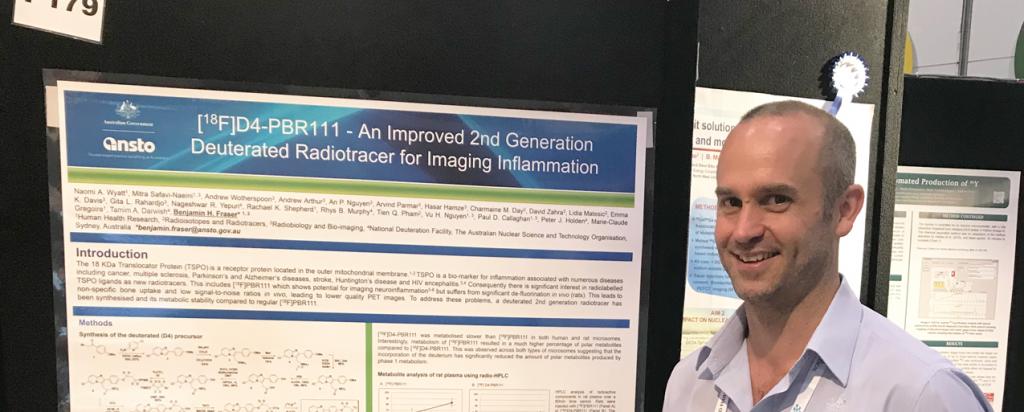

Published on the 23rd April 2018 by ANSTO Staff
Dr Ben Fraser from ANSTO's Health research theme attended the 12th Congress of the World Federation of Nuclear Medicine and Biology (WFNMB) that was held in Melbourne (20-24 April), to present a poster entitled “[18F]D4-PBR111 - An Improved 2nd Generation Deuterated Radiotracer for Imaging Inflammation”.
The translocator protein (TSPO) is a receptor complex located in mitochondria in humans. TSPO is a biomarker for inflammation associated with numerous diseases including cancer, multiple sclerosis, Parkinson’s and Alzheimer’s diseases, stroke, Huntington’s disease and HIV encephalitis. Consequently there is significant interest in radiolabelled TSPO ligands as new radiotracers. This includes [18F]PBR111 which shows potential for imaging neuroinflammation but suffers from significant breakdown in the body. This leads to uptake in non-target areas which results in lower quality PET images.
To address these problems, a collaboration between the ANSTO Health research group and the National Deuteration Facility has designed and synthesised a deuterated molecule to harness the deuterium isotope effect, helping to stabilise the molecule and prevent breakdown. Studies have shown that the deuterated radiotracer - [18F]PBR111-d4 - is more resistant to metabolic breakdown than 'normal' [18F]PBR111. Careful choice of the site of deuteration gave a decreased rate of de-fluorination, decreased bone uptake, decreased non-specific binding and increased specific binding in rats.
 |